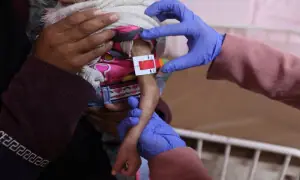Global: What you need to know about the coronavirus right now
(Reuters) - Here’s what you need to know about the coronavirus right now:
Not the time to take foot off pedal
More than 136,000 new coronavirus cases were reported worldwide on Sunday, the most in a single day so far, World Health Organization (WHO) Director General Tedros Adhanom Ghebreyesus said at an online meeting. “More than six months into the pandemic, this is not the time for any country to take its foot off the pedal,” he said.
WHO’s top emergencies expert, Dr. Mike Ryan, also said infections in central American countries including Guatemala were still on the rise, and that they were “complex” epidemics.
Hugging and dancing
“I just realised ... I can hug someone today,” said one user on Twitter where #COVIDFreeNZ was trending as New Zealand removed all coronavirus restrictions for the first time in more than three months, after it declared it was free of the virus on Monday.
This means no more limits on people in cafes, malls, stadiums, nightclubs or public and private gatherings. Life, for the most part, is back to normal. Many offices and businesses still have hand sanitiser dispensers at the entrance, although it is no longer mandatory to use them. Pubs are opening their dance floors and are expecting many to turn up on Friday.
Stock surge at odds with official recession
On the same day that the Nasdaq marked a new bull market, the U.S. economy was officially declared to be in recession. The two milestones on Monday illustrate how an 11-week surge in stocks has occurred despite widespread economic devastation fuelled by the coronavirus pandemic.
Wall Street for months has appeared to ignore grim economic readings as investors focus on trillions of dollars in government stimulus and bet that a recovery would be relatively quick.
Negative coronavirus PCR tests rarely wrong
The most reliable method of diagnosing infections with the new coronavirus is the so-called RT-PCR test of samples obtained by nasopharyngeal swab. Researchers at two large health systems analysed data from nearly 21,000 people who had tested negative for the coronavirus and found that fewer than 5% came back for a repeat test within a week because symptoms that led to them getting tested had persisted or worsened.
Of this group, just 22 people, or 3.5%, were positive for the coronavirus on the second test. "These observations suggest that false-negative nasopharyngeal SARS-CoV-2 RT-PCR results do occur, but potentially at a lower frequency than is currently believed," the research team concluded in a paper published on Sunday in Clinical Infectious Diseases.

















Comments are closed on this story.